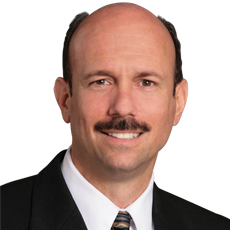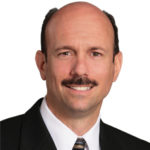
For people with complex health and social needs, getting better isn’t simply finding and receiving the best care they can access at their local hospital. Today we’re increasingly aware that social determinants of health—non-clinical factors like access to transportation or food — play major roles in our health, especially for vulnerable older adults with multiple chronic conditions and daily living challenges.
Many of these people, a majority of whom are older than 65, encounter a system that often doesn’t offer the help and coordination they need beyond the four walls of their hospital or physician practice. As a foundation focused on improving care for older adults, we’re intensely aware that as our population ages, more Americans will find themselves in this predicament. That’s why it’s essential that we identify and spread ways to help people with complex needs receive the coordinated clinical, social, and behavioral services they need. Within Medicare, for instance, just 5% of its beneficiaries account for 40% of all spending.
The SCAN Foundation has a wealth of experience supporting efforts to improve care for older people who live with chronic conditions and daily living challenges. In California, we’ve been hard at work improving outpatient care for this population. Working with other state health care groups, we’ve supported the replication and testing of person-centered models, which embed care coordinators in primary care practices. These care coordinators manage clinical care and non-clinical services for vulnerable patients, including home health services, transportation, and behavioral health care.
We aren’t alone. There are an increasing number of promising approaches that combine medical and social services to improve care for patients with complex needs, with the goal of improving quality of life and reducing overall costs. And while much is known, there are still gaps in our collective knowledge, and more research is needed.
That’s why we’re excited to collaborate with four other major health foundations – The Commonwealth Fund, The John A. Hartford Foundation, the Peterson Center on Healthcare, and the Robert Wood Johnson Foundation– to collectively as well as individually support efforts to improve care for people with complex needs. By pooling our expertise and resources, we can identify what is and isn’t known, effectively treating these individuals, address gaps, reduce duplication, and accelerate adoption of what works.
We recently worked with experts at the Institute for Healthcare Improvement to develop a ‘Playbook‘ curating information on improving treatment for this critical population. The resource helps health systems, insurers, policymakers, and others access case studies, analyses, and information on policy and payment reform opportunities.
Spreading information about promising approaches is only the start. Ultimately, we hope to foster the adoption of models, promote policies, improve quality measurement and monitoring, and engage others in this work. Together, we can help our health care system better help the older Americans who need it most.
Bruce A. Chernof, MD, is president and chief executive officer of The SCAN Foundation.




